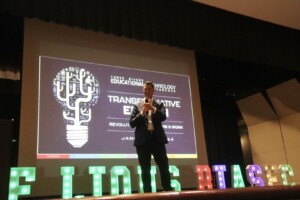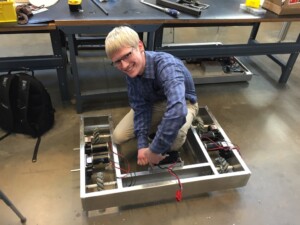Two Pathways to EdTech Impact

Shelly Blake-Plock wrote an impassioned blog recently claiming, “edtech doesn’t exist.” He argued for a “thrust of imagination and creativity” that combines semantic web and “new forms of interaction between the Internet and humans.”
It’s great to see Shelly and his partner Andrew Coy bringing this sort of energy to Baltimore’s Digital Harbor Foundation. But his criticism of “blind investors pouring money into “edtech” things they don’t understand” is a little overheated. He suggests most startups are looking for a quick exit where “viral is more important than effective.”
The Wikispaces guys said something similar and suggested startups should, “Take the direct approach: Charge your customers.” They criticize investors with “consumer Internet expectations.”
Harvard professor Reynol Junco thinks most Edtech startups suck because many are not adequately rooted in classroom problems and connected to academic advisors.
Two pathways to impact. All three authors are interested in impact at scale, an aspiration I appreciate. They are probably sympathetic with John Katzman’s advise, “startups are better off assembling a good mix of people with deep backgrounds in education and business.”
Chris Whittle seems to agree. Avenues is another mega-funded Whittle startup. But all brand name edupreneurs find it very difficult to fund a thick startup. A philanthropic investor that extracts some of the risk for private capital can help if there’s a clear charitable purpose.
Thick startups are common in the nonprofit world (more on that next week in a feature on premium content). One edtech exec sees “a mixture of hubris and naïveté” in foundation funded startups. They usually deliver what the grant agreement calls but that may not be what the market is looking for. I see longer timelines and less iterative development in thick startups.
The obvious benefit to thick startups is the opportunity to take on big challenges and build real solutions. A thick startup can develop the capacity to work with scaled partners and connect with a big web of teachers.
The lean startup alternative relies on development of a quick beta product, frequent testing, and iterative development.
One downside to lean startup is a lack of commitment to a mission. I’ve seen great teams iterate off a great mission because they didn’t find early traction. Another downside is the limited ability to work on a big problem — with little money or time, most teams try to solve small problems in the current system.
The big bet of most lean startups is the potential to develop network effects as the user base grows. Edmodo is a great example of iterative development based on teacher feedback with expanding benefits of a big user base.
Thick startups attempt to build valuable solutions for a few early customers. Lean startups try to build a big user base upon which they can develop network effects. They require different teams and different investors. They are both viable pathways to impact.
Edmodo is a Learn Capital portfolio company where Tom Vander Ark is a partner. This blog first appeared on EdWeek.





Tom Vander Ark
MasteryConnect is another great example of a lean startup building network effects with viral adoption of a great core app; see recent feature http://www.gettingsmart.com/gettingsmart-staging/cms/blog/2012/12/masteryconnect-eases-common-core-alignment-instruction-tracking/